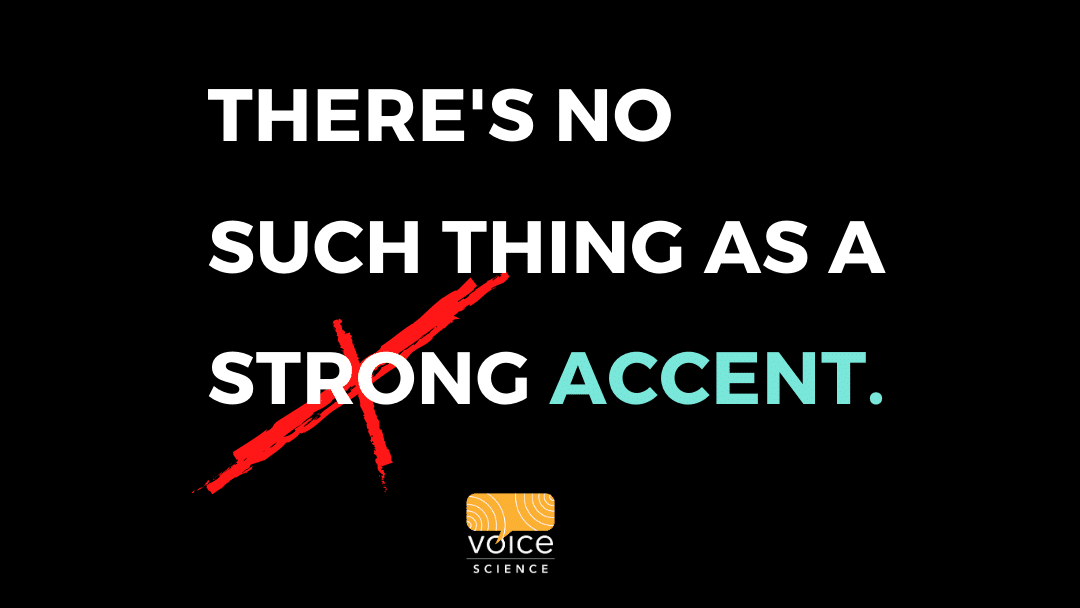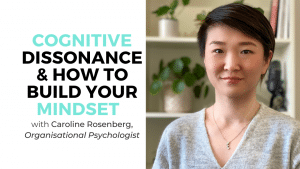Voice Tone, Communication & Accents in Australia - Finding Your Identity
Podcast with Language Lovers AU See our communication servicesCommunication in Australia
Last week I was lucky enough to be invited to sit down and have a chat about Voice tone, Communication & Accents in Australia with Bec and Penny from Language Lovers AU.
Penny and Bec started Language Lovers in 2018 after seeing the need to create more connections in Australia for people who “share a common interest in languages.” Their purpose is “to help connect people in this big, beautiful multilingual country and create opportunities to meet, chat, learn, discuss and share our passion and enjoyment of languages with others.”
What a wonderful mission.
Since 2018, Penny and Bec have been busy advocating for multilingual pursuits in Australia and have created loads of workshops and events. All their events are focused on creating real language experiences.
Some standouts from the past include a Language WALKshop in Italian at a winery, their sell-out Italian Kitchen Walkshops with Monica from Su Misura Italy, and Language Bites where they take you to local restaurants so you can learn how to pronounce your favourite Greek or Vietnamese dishes.
I hold the view that we have a lot of work to do in Australia to increase acceptance of language diversity within the mainstream systems so it was an honour to speak with Penny and Bec who are making a large contribution in this space.
Penny and Bec brought deep questions to the podcast around voice tone, assertiveness and accent identities in Australia. They both have a brilliant knack of extracting information out of you while setting you at ease so I really appreciated their warm and friendly conversational style.
I hope you enjoy tuning into this one!
XO

Voice tone, Communication & Accents in Australia
Podcast with Language Lovers AUTranscript
Bec
Welcome to Language Chats. This is a podcast for Language Lovers in Australia and beyond, where we share our enjoyment and experiences of language learning with you. I’m Bec.
Penny
And I’m Penny and today we’re very excited because we have a special guest joining us and we love it when we have special guests. Sarah Lobegeiger de Rodriguez, welcome.
Sarah
Hello, thanks for having me.
Penny
We are very excited. And Sarah is … some of you might have come across Sarah actually in previous kind of language-related events. And Sarah is a qualified speech pathologist and an opera singer and runs a business called Voice Science based in Melbourne. Sarah’s got lots of different interests in things like accent reduction, vocal Therapy and Rehabilitation, and she is a Certified Practising Speech Pathologist. And welcome Sarah.
Sarah
Hi, everyone.
Bec
So good to have you on the podcast Sarah. We’ve both seen you present at other events, most recently, the Polyglot Conference Global, which was on earlier this year, and also at the Melbourne Language Event last year.
Could you tell us a little bit more about yourself for the benefit of everybody else who’s listening?
Sarah
Yes, sure. So I guess the best way to describe me is a person with a complete and utter fascination with sound.
And I only really discovered that that was what brings everything together when you get Sarah Lobegeiger de Rodriguez.
And the reason for that is I love music, I’m an opera singer, I work with sounds in my clinic.
What I really do as a speech pathologist is measure sound, and manipulate and modify it and make it different, or, you know, adjust pronunciation sounds, or polish up voices and things like that.
So really, all of my world is just a sound world.
If I’m not working with clients or singing, I’m absorbing music or checking my languages. And yeah, it’s just all about sound for me, which, to me is actually quite fascinating, because I always thought I had a love of words.
But I’ve realized, for me, the love of words, and language comes down to the sound value… If that kind of makes sense?
Penny
But that’s one way to explain it. I love that. Hmm. With with your interest, because I know that we’ve heard you talk about your language learning in the past.
And I know that music has been such a huge part of your life from when you were young. When when did the two kind of intersect?
Did you always have a love for languages before you started music?
Or was music your first love and languages thing kind of came afterwards?
Sarah
Well, when I was a child at about the age of four, I remember wrapping myself in a curtain (or perhaps the family told me I did and I remember that) and pretending to be Maria Callas.
So pretty much from the outset, I was trying to be an opera singer at a small age.
But then I went to school and shared it with friends, you know, in the whole classroom, “What do you want to be when you grow up?”, and I got ridiculed. So I adjusted my career choice at the age of five or six and told everyone I was going to be a fire lady instead. I put opera put to the side because of peer pressure!
And then later in my teen years, and actually even early adolescent years, I decided I wanted to be a Shakespearean actress.
So I really focused on Theatre Arts and drama and diction for Shakespearean acting in my very early teens, and had always thought I’ll be an actor, but went and studied Theatre Arts at University. Alongside that from 16 or so I was in school choirs a lot and singing a lot of solos and picked up a classical singing teacher, which I thought was there to complement my Theatre Arts development.
At about the age of 19, I really just lost the buzz for the spoken word and it instantly jumped into classical singing.
So at that point, I transitioned into classical singing and didn’t ever really look back. So I think music was at the start, and then the spoken word, and then through the spoken word, I moved into the sung word, and stuck there.
And then from that, I realized that being an opera singer, for me was so much more interesting and expressive because of that exposure to numerous languages that the career requires.
And also the fact that the colour and the palette of the voice as a singer is so much more expansive than as an actor and that’s not to put down actors but when you’re singing in opera, you’ve got a massive dynamic range so you can change your volume, you can change your tone and darken the sound or brighten the sound.
And then you’ve got all of your vowels and languages, which are also tools for expressing different sounds and meanings. That for me was just so much more fascinating than just being stuck in the English language and spoken word.
Bec
That’s fantastic. Can you can you tell everybody a bit more about which languages you have sung in before or performed in?
Sarah
Sure. So within the classical singing world, the typical agenda for a singer in terms of languages is Italian, French, German (there’s a lot of repertoire for German) and usually Slavic languages, Russian, Czech, so I’ve done all of those, quite a lot of them.
Also Spanish, you may pick up some Greek artistic songs.
A lot of the classical singing works that are not theatrical, but more for chamber performance, they’re based on a lot of the very famous poetry and texts of the writers of these core languages, especially with the Nationalist School. So in the time of Rachmaninoff or in the time of Smetana, you start getting a lot of texts from the writers of the period, and the composers are working hand in hand.
It’s very rich in language, that whole world.
Penny
Where do you even begin, in trying to sing music or written music? That is not in a language that you speak? How do you even start with that?
Sarah
It’s this very long tradition where a teacher taught their student and their student became a teacher, and it’s just been passed on and you know, some of the teachers you can map a long way back to possibly the time of Puccini, you know, the Italian opera greats.
But the way we always are taught as singers is through the vowels. So we train the voice through vowel clarification. S
o for classical singing, we’re articulating the romance vowels, and they’re the core vowels that we begin with where in other parts of Europe, like in the Eastern parts of Europe, you’ll probably find that the articulation of the Russian text, and placement of Russian vowels is a lot more predominant. So you start to get a slightly different sound, but it’s built on the vowel.
And that’s why, you know, you might think of singers always going “la la la la la” .
That’s just to clarify the vowel placement with the jaw and the tongue, the air stream pressure, it’s quite sort of structured.
And we have scales and drills, and then we move into, we graduate into we call them vocalises. And these are small songs designed to teach a vocal technique, like how to make your voice louder, or how to sing faster, or how to do little staccato dots on the notes. And on that technical study is placed text, usually Italian, and we sing it, there’s a very famous text called 24, Italian songs and Arias, which we all get sick of, because that’s our bread and butter as a young singer.
So we train the voice through that, and then gradually graduate into other repertoire. And you know, it can get really detailed, but a lot of the work as an opera singer comes down to phonetic accuracy, because if we don’t know the placement of the sound in the mouth, we can’t represent the intent of the writer, or actually the intent of the composer, because the composer doesn’t just write notes, the composer is also communicating in the language of music. And you know, we’ve got the written text plus the musical structure that’s there to tell a story to the audience.
Penny
Do you think because of this huge extensive training and experience that you’ve got in both as a singer and as a speech pathologist, I mean, how is that must-have, you know, that must have a super influenced on the way that you approach languages, not only learning languages but English as well.
What do you think your background and trainng has brought to you in terms of learning new languages?
Sarah
I think it’s brought empathy.
And especially what I’d hope to think it’s brought empathy, because in learning to sing well, you, you put yourself out there so strongly, and you do receive very harsh, critical, almost damaging feedback from your teachers or conductors or peers even.
And as an English native singer I was really held back because the bulk of my workload is the Romance languages.
So having to undo all my vowels and try and get closer to native speech patterns as a singer, which is what’s required of me. Pro-diversity aside because in opera it doesn’t sort of count around representing the sound of the text. What that gave me was the feeling that my accent was never good enough as an Australian, and a sense of shame at representing another language on stage and always falling short. And from that, that has enabled me as well as living abroad but it’s enabled me, to position myself alongside my clients who are experiencing the same thing here in Australia when they’re met with unfair feedback.
So in classical singing, it’s not unfair, but in daily life, it’s an unfair feeling to feel that you don’t sound the same, or where you believe the bar is set for English speaking, and to receive feedback from an audience of local English speakers or others around you that you’ve got a “strong accent” or “you say that funny” positions my clients in a very difficult spot.
That’s allowed me to become an advocate and to fight against this myth, that there’s no such a thing as a strong accent.
Penny
Yeah, that’s, that’s really powerful, isn’t it? And I can feel just with you talking about this, this is, you know, a huge passion of yours.
And I know that that’s a big part of what you do through your work is accent reduction.
Why do you feel your clients do come to you for help in accent reduction?
Is it about being understood? Or is it this perception of not feeling like they fit in. What’s your take on it?
Sarah
So in most cases, a client comes to me for accent reduction, which I blatantly refused to do.
Because I don’t believe in it.
I feel like it, it’s a breach of diversity, it’s unethical, it’s, almost like trying to stamp out identity.
I don’t want to neutralize anything. So what I will offer them is pronunciation clarification, which is obviously a very subjective concept, because the clarity of our message is so dependent on the audience we’re presenting it to, so you’ll never be okay, if you want to reduce your accent because your audience, the listener, will constantly change.
If I go to London, I’m perceived as having a strong accent. So should I also modify it for that audience? And then if I go to Canada, you know, I’m ruined either way…
So with my clients, I’ll offer a chance to clarify certain sounds that may for a listener who holds negative bias and a lack of flexibility, assist the speaker.
The research tells me, and I’m sure everyone will agree with this, there’s actually nothing wrong with sounding different from your listener. And listeners will accommodate if they care to do so. Or if they show some tolerance and flexibility to do so. Within the first five minutes of speaking with someone who has a different sound set for the spoken language your in, the ear starts to convert and adjust with a greater agility.
So we don’t want to reduce the accent. But we do want to showcase the sounds that might make the message transfer easier, given that our audience and I’m going to be hopefully not too inflammatory, but given that we are probably fighting against a very un-educated listener in Australia, in terms of language diversity.
Bec
Do you think understanding accents and being open to hearing other slightly different accents to the ones that you are used to, is the way to help this twofold? Do we need people who do speak with a slightly different accent to understand that:
1. That’s okay, and,
2. That the broader community also a more understanding about accents in general?
Sarah
Yes, I think so.
And I think we also need to take a close look and check ourselves and check who we really are in Australia now. This has to be reinforced at the highest levels. So I won’t get into an argument about whether, you know, Australian English is the official language of Australia (It’s not).
But I think we need to have more representation of the linguistic diversity of our country, within the hierarchy within the curriculum in schools.
There needs to be a lot more advocacy at the basis of our society because I often tell my clients who are really struggling with their position within Australian society, and we’re very fixated on the fact that their English isn’t good enough, although they may have grown up in India, and were solely educated in English.
I mean, this is preposterous!
And yet, I meet individuals on a daily basis, who feel that, although they have equal dominance in possibly four languages, they’re coming to me because they’re concerned about their communication.
The research will tell me that actually if you speak more than one language, you have higher ratings for problem-solving, you usually have 20, minimum 20, more IQ points, you’ll be a lot more creative, and also a lot more empathetic. So this is something that should be applauded.
Why is this person feeling so small?
It’s because the systems at play are constantly reinforcing English everywhere we go.
In the school system, you can learn a language, but it’s a minor sidelined subject. And this is a big problem. And I think the other factor is that if we actually really look at our society…
I often tell these clients,
“Stand on the steps at Flinders Street, and just cast your gaze from the steps on a regular day, not in 2020, probably, and just look at everyone in front of you. And you tell me, do they sound like me? Are they native speakers?”
And they’re not.
And we’re all able to cope with that.
But I don’t think society and workplaces are yet at that level, because I keep reading articles of how this negative bias around accent and cultural identity is still making people get stuck in their career progression.
And people are still facing this impression that when they speak to someone, they’re being rated in terms of their ability and capacity to do a job on the basis that English is their second language.
So I don’t want to sound negative, but it is really negative actually. And I think we all have to speak up.
I think we have to actually speak up about accent and the fact that it’s, it’s not plausible, to it’s actually not ethical, for people to be in a position to think it’s okay to say,
“Oh, you’ve got a strong accent, or
“I’ve got a strong accent.”
There’s no such thing.
This is a concept that’s relative to the listener, and the listener always changes.
So there really is no such thing, we have to just take that person in front of us.
If we show empathy and emotional intelligence, we’ll be able to work out what they’re saying, and just move on and focus on the content.
But the modern era at the moment isn’t modern enough to do that in the majority.
But by the same measure, I think also there are individuals who have that positive bias.
So the minute I meet someone who indicates to me through their speech patterns that they speak more than one language, I instantly give that person tickets and points.
So what we really need to do is get society in that position, rather than “You’re not very clear, what did you say?”, or the constant correlation between “This person sounds different.
So it’s within my scope of influence to be allowed to ask them?
Where are you from?
Or make lots of questions on the basis that they don’t sound like me so I can categorize them?”
Penny
It’s all those points are, ringing huge bells in my head, because a lot of it, I feel like, a lot of it’s about diversity and what we’re not seeing or what we’re not hearing.
I think wouldn’t it be great because I’m thinking about the media a lot, and what we see on TV or even just through the news, and those kind of things radio.
I don’t hear a lot of different accents in mainstream media at all. Do we?
And wouldn’t that be something great for Australia? If we did have this as a commonplace thing if your newsreader had an accent?
Bec
Yeah, absolutely
Sarah
It would be very important for my clients because I’ve had a couple of clients tell me that it’s when they’ve seen an individual who they might associate mutuality with around their own speech patterns, that when they’ve seen that person in the public sphere, that has helped them like no end.
It’s actually enabled an individual like that to feel comfortable to actually consider “Maybe I could do some public speaking after all.”
So this is causing strong communication barriers, which I then, as a clinician have to assist.
Medicare and Private Health would never support an international client in their pursuit of English clarity (whatever that means) because that’s subjective.
However, I’m in a situation where I meet daily someone who actually presents with the traits and symptoms of a communication disorder as defined by the World Health Organization, which would be loss of function, activity limitation and reduced social participation, to the degree that it becomes a fine line between
– Is this person not communicating and showing up because of a mental health impact?
– Or has this all just come down to their positioning within this society where their identities aren’t validated?
Bec
It’s so interesting, everything that you have brought up, I completely agree with like, could we say more in the media of the actual representation of the diversity in both accent and language that we do see in Australia these days.
It’s something Penny and I have spoken about before.
But it is just as you said, if you go out on the streets of Australia in a normal time now maybe not like at the moment where it’s things are a bit quieter in the city, but regularly, you really do see daily examples of how diverse a city like Melbourne, but also Australia as a country is.
And why that isn’t translated into our mainstream media, especially on television and radio, so anything that involves voice, is puzzling, actually.
It is, it’s concerning.
And I think that we’d all be absolutely better off if we had a little bit more diversity in what we say, amongst media.
Sarah
Even in politics.
Bec
Oh, yeah. Hundred percent.
Penny
Talking about politics, our former Prime Minister Julia Gillard came to mind when I was thinking about our chat that we were going to have with you this morning, Sarah.
She received from memory, a lot of backlash about her “broad Australian accent”.
And I’m just putting broad in inverted commas here, which you can’t see.
I want to know what your take on that was and where were we coming from as a nation if we were criticizing someone for their seemingly, what we would call, an Australian accent?
Sarah
Yes.
So the research that’s out on communication and gender is quite harrowing.
I read quite a lot of it because we do high-performance communication consulting for executives, and often I meet female executives who are just not getting that traction that they see with their male counterparts.
I think this is the space to discuss this topic.
I’ll probably just throw a rhetorical question out there and say,
Well, why didn’t they pick up on the dominant broad Australian accent of the male politicians?
Because I’d love to hear them talk about that.
There’s a few articles out there and it often will come up, as feature pieces in nice broadsheets around the policing of female voices.
That discussion often falls within the category of vocal fry.
There’s definitely a policing on female speech patterns.
And I think it’s very interesting that Julia got that backlash.
But also, I’ve been reading a lot of research around the notion of assertiveness, so that we can develop strategies and structures for our clients to empower their ability to be assertive successfully. In my reading this year, from the research, I’ve uncovered that typically, females in the corporate structure will be punished for communicating in a dominant manner. They’re also punished if they communicate agreeably, where males will be punished if they’re too agreeable and rewarded if they’re dominant.
Now, the rewards are measured in terms of the amount of money the employee will be paid and also the tenure-ship.
So in the discussion around Julia Gillard, we’re also dealing with a notion of tenure-ship.
So we could actually ask,
“Was Julia Gillard punished as a female given what we know according to some pretty solid research that if females are too agreeable, they’ll not get promoted? And if they’re too dominant, and argumentative which is indeed the role of a politician, they’ll be punished?”
Is this why we don’t really see a lot of female politicians in that top-level?
Because that’s a microcosm of society. Well, it’s not actually.
Unfortunately, nothing is a microcosm of society in the hierarchies in Australia because we’re not seeing international representation.
We’re not seeing linguistic diversity, which our society has.
And we certainly don’t see enough females communicating in positions of authority and power.
And when we do, they are punished.
I think a lot of this comes down to positioning and the communication style.
The research suggests that when women are assertive, they actually have to inoculate the assertive statement before they place it.
So I can be assertive.
But I’ll do better if I say, “In the interest of transparency, I feel I should share my direct opinion.”
If I insert that I’ll be less likely to be punished.
So we’ve got these structures that we use at Voice Science so that women can inoculate the listener so they won’t be penalized for saying what they think.
We need to use them otherwise, people are risking their jobs.
So I think this does come down to language, it comes down to messaging. And there is a gender factor, although I’m not a rampant raging feminist.
I think we can analyze Julia, in terms of a lot more than the accent actually, I think it’s in terms of what does the dominant structure do when they see a female communicating within a high-level position in Australia?
Bec
Where does apologizing come into that?
Is it a way to soften assertion?
Because I think that that’s something that we’ve been hearing a little bit more about lately, with people suggesting how you can try to apologize less, in especially a work context.
I also think that is something that women in some ways are a bit more predisposed to do, to try to sometimes lower the impact of something that can otherwise be seen as a bit strong, or a bit too assertive?
Sarah
Yes, this is really such an interesting question, because I think a lot of this is grammatical- cultural grammatical.
So English has these wonderful modal verbs, which we use to soften and hedge our statements.
We’ll find a lot greater use of modal verbs like
“Would it be possible if I could”,
rather than,
“Give me,”
in the English language, especially within Australia.
So I would say that direct speech which would just be an infinitive statement, like give me coffee, or you know, reflexive statement, is a lot more present in certain languages.
This actually helped me when I was learning Slavic languages and living in Sarajevo.
All you say is,
“Daj mi Kafu” which is “Give me coffee.”
And I tried to translate my Australian grammar on that and started saying crazy things.
I’m not sure if I remember it all, like
“Molila bih jedno cappucino bez masnoce molim? ( Could I please, if it’s possible, have a cappuccino without high-fat milk?)
And they just looked at me like, Who are you?
And from what Outer Space galaxy have you come from?
By applying the grammatical structure of Slavic languages, you just go straight to the point.
So verbal apology is present in the grammar we use in English. It’s present in the tag like questioning nature with our upspeak.
So I might say, “Would it be okay if I leave on time?”, versus, “I need to leave at 5 pm.”
We show verbal apology through the sentence structure, the verbs that we use, modal verbs to suggest hedging, but also through our vocal tone, so we might drop the resonance so that we sound a little less like pushy, and this is very commonly studied in the speech patterns of female speakers.
But also, then there’s a counter-argument from some researchers saying “Why are you constantly policing female voices?
Men do it too.”
And they do.
So it’s very interesting.
I’m sorry if I’m sort of just throwing lots of ideas out there without giving a fixed answer, but I think removing apology is very important. And if you find yourself apologizing consistently in your statements that need to sound like commands or directives, there’s a gap in your communication tool stack because ideally, every person breathes the same air.
So we all have a right to be assertive. We all have a right to to be diplomatic, we all have a right to be persuasive.
But a lot of people will stop being assertive because they just haven’t found the language structure and the vocal tone to deliver that without getting punished for it or without being at high risk.
There are some ways and means, but a lot of it also depends upon, the willingness of the audience to receive a dominant statement.
Penny
What about things like voice pitch and tone when we speak?
It was something that was brought up to me when I was in my 20s. I remember a boss of mine saying that I need to bring my voice down a bit.
So I was speaking very high, I sounded very girly, and not very serious. And she said, “If you if you bring your voice down a bit, you’ll be taken much more seriously.”
I just wondered, is that something that you come across Sarah?
And is this actually a real thing? Who cares? Can you speak in whatever pitch you want?
Sarah
Yes, so there’s a lot of research considering will you be rewarded if you speak quite low as a female.
There’s a lot of women doing this, just to have that gravitas.
When we communicate, we need to show sincerity in our message and we lose that if we modify outside of natural.
What I think people need to pay attention to is the acoustic of the sound, not meaning volume, but the efficiency of the voice to project into the room with clarity. A lot of people are holding the sound in the back of the throat, due to inconsistent air stream pressure and that will work against you a lot more than speaking at a high pitch versus a low pitch.
So currently, my pitch is very high. For a female, it’s usually between 240 vibrations to 260 vibrations per second, where this idea of a lower pitch for a female would be positioned at something like 150 to 180 vibrations per second.
In spite of that, I can still sound firm and assertive. I achieved that by positioning the sound with a strong, unforced tone at the front of the face due to the way the air stream coordinates, the symmetry and my jaw, things like my tongue position and just good use of the vocal machine that powers my sound.
I think there are some studies that do suggest that female executives do a lot better if their pitch is low. By the same measure, male executives do a lot better as well.
However, there are a lot of people speaking at a low pitch, who would lose ratings on things like credibility and trust, who are using this type of quality (poor voice tone).
That’s actually far more damaging than having a slightly higher voice.
That being said, a lot of people in management are giving feedback about communication without actually understanding the principles of communication or the science of communication.
It’s a real science.
And yet, in KPI meetings, people are given feedback. A typical feedback statement would be –
“Your communication is holding you back from us appointing you to a position of leadership”
But the specific info according to some research is not often given.
So a lot of people are in the dark about what they should do?
Should I change my voice?
Should I change my sentence structure?
And you know, there are often things that really do often come down to the quality and the clarity of the speaker’s voice as being the main impact for conveying leadership and credibility.
Penny
I really like that point about losing authenticity, if you’re modifying your voice in some way I think that’s a really goodpoint to remember.
Bec
Yeah, I agree. I mean, surely, sounding natural, and comfortable in your own speech is important for anything.
If you wanted to try to persuade somebody to do something, in no matter what language it may be, actually sounding like you believe it by sounding natural is surely of the utmost importance I would think rather than trying to make your voice sound a particular way that you think maybe those people might react to.
Sarah
Yes, absolutely.
This is really helpful also for us to apply to language learning as well because it’s very easy to adjust the position of the sound when you’re not across your message.
And that’s what happens.
We don’t have all the vocabulary, we’re unsure of the grammar structure to form a statement and then with that, in communicating in our second language, we can show a sense of verbal apology.
It’s good to check when you’re practising or drilling or trying to build up your conversational skills in learning your second language, try and position your sound vocally, not in terms of the pronunciation, but vocally, try and show the whole spectrum of your vocal expression within your other languages.
This is something that really holds my clients back at times.
When they arrive in Australia, they get across English, but there’s always a vocal apology because of hesitancy that they could say it better possibly. So getting that voice working is pretty important.
Penny
Do you have any ways for people to try any strategies, I suppose, for people to be able to understand and improve their understanding of different registers in other languages or in English?
Because that seems like that might be a way people can get used to a very casual, informal register.
But actually being aware of the other registers that you say in a language are important for you to both practice, as well as for you to understand in the general context of communicating.
Sarah
Yes, I think this is really a great place for increased creativity and flexibility in your language learning.
And you know, we’re all short on time often with that, but I think it’s important not to neglect that you can have different sources that you’re consuming. So consume the news, consume philosophical conversations on YouTube.
It’s a bit like reading literature versus reading a blog post in your target language versus following some Instagram accounts in your target language.
So give yourself a lot of variety across the different contexts, because contexts inform the tone of the message and the speaker. And I think that’s where you can actually start to think about degrees of formality and how the language that you’re learning represents formality or even honorific interactions. So obviously, grammar is there for certain languages to show honorific form. But in languages that may not have it, you’ll notice a switch in the delivery according to the context or the key players communicating so trying to see instances of where that could be simulated, maybe by watching sitcoms or watching political speeches from a country that speaks that target language could be quite helpful, perhaps.
Penny
Sarah, I feel like you have just come on the podcast and just you know, blown all our perceptions away and just given us so many great juicy things to really consider and think about. So thank you so much.
Sarah
Thank you for having me. I do enjoy a good chat. So I’m sorry if I just kept going for it. But you know, I have to fulfill the title speech pathologist. We are called speechies after all.
Bec
Yeah. Really, really great. Sarah so many good things to think about. Thank you so much.
Sarah
Thanks for having me.
Penny
Ah, absolute pleasure. If people listening are keen to hear or find out a bit more about you, where is the best place for them to head to?
Sarah
So you can find us on pretty much all social media platforms under the handle Voice Science. And then we have a website, www.thevoicescience.com
Penny
Oh, that’s fantastic. So thank you again for tuning in for another episode of language chats. And if you are curious about past episodes, of course, there is plenty for you to listen to. Please check out all the https://www.languagelovers.com.au/ stuff online as well on Instagram and on Facebook.
Bec
And if you have enjoyed this episode with the lovely Sarah, please do leave us a review. It does help other language lovers to find us as well. Thank you.
Penny
And we’ll see you next time.
Bec
See you next time. Thanks, Sarah.
This podcast was recorded by Language Lovers AU on November the 21st, 2020.
Further reading
Read our Position Paper On Racism here.
Cognitive Dissonance & How to Build Your Mindset Read here.
Did you know that cognitive dissonance can disrupt your English speaking comfort?
The way you view yourself can directly impact your ability to interact effectively as a communicator, leader and employee so I think this conversation will really speak to you.
Click the link to read a guest blog post from Caroline Rosenberg, Organisational Psychologist.
There’s no such thing as a Strong Accent Read more and help yourself to some advocacy here.






